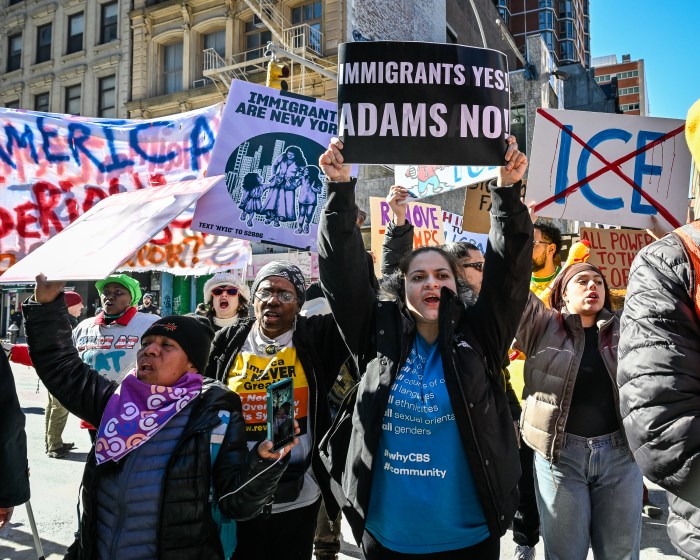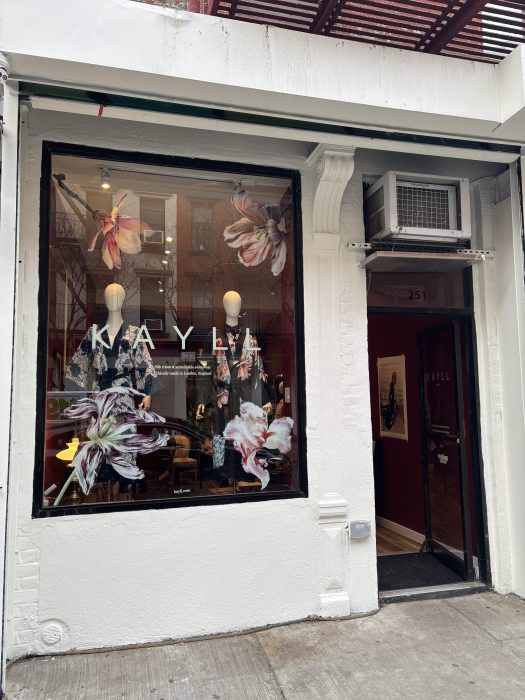To address sexual harassment in the workplace, employers should provide multiple ways to report complaints, carry out timely investigations and ensure there is no retaliation for employees who report misconduct, the city’s Commission on Human Rights says in a report released Wednesday.
The 30-page report includes “best practices” for all city employers on policies for reporting and investigating complaints and training staff. The recommended policies are based on testimony at a public hearing in December from workers in a variety of industries, including hospitality, retail, domestic work, construction, fashion and entertainment.
The hearing reiterated the prevalence of sexual harassment across all fields, which has been pushed to the forefront through the #MeToo and Time’s Up movements. And testimony from some of the most vulnerable workers — including immigrants, people of color, LGBTQ workers and women working in male-dominated industries — revealed a common fear of retaliation.
“Today’s report is the culmination of the Commission carefully listening to survivor experiences, and tailoring suggested legislative and policy changes to respectfully address common themes,” said Emily May, the executive director of Hollaback!, an advocacy group that testified at the hearing.
Here’s a first look at some of the commission’s best practices for employers:
- Eliminate obstacles for employees to report harassment by clarifying the proper procedures and providing multiple avenues for reporting so that if a direct supervisor is the alleged harasser, there is someone else the employee can report to.
- Periodically check in with employees to ensure they know the sexual harassment policies and consistently enforce policies against retaliation.
- Investigate all alleged instances of sexual harassment as soon as they are reported and take measures to prevent further misconduct, such as separating the individuals involved, while the investigation is happening.
- Regularly train employees on the laws prohibiting sexual harassment and retaliation, as well as the companies’ policies and procedures for reporting. The commission also recommends bystander intervention training “to foster a culture of collective responsibility for harassment” and workplace civility training “to set a workplace-wide standard for respectful behavior and language.”
The report also includes recommendations from the workers and advocates who testified at the December hearing. One of those suggestions is to ban nondisclosure agreements, but due to the varying opinions on the agreements, the commission said it has not yet determined a recommended policy.
Another recommendation from the hearing is to raise the pay of tipped workers to minimum wage, so that they aren’t as dependent on customer satisfaction, which employees said can increase the likelihood of harassment.
Additionally, the workers recommended that the commission help industries develop tailored sexual harassment training and increase outreach to employees, especially the most vulnerable, to educate them on their rights and how they can file claims.
Sexual harassment and gender discrimination can be reported to the commission by calling 718-722-3131.
The number of sexual harassment claims the commission has received has increased by 43 percent over the last two years, a spokesman said. It is currently investigating 148 claims of sexual and gender-based harassment, which is about a quarter of all gender discrimination complaints being investigated.
The commission’s report follows the passage of the “Stop Sexual Harassment in NYC Act” in City Council on April 11, which includes bills to extend the statute of limitations for filing claims to the commission from one to three years, to remove a limitation on the city’s law that said employers with four employees or less were not liable in harassment cases and to require private employers with 15 or more employees to provide anti-sexual harassment training for all staff after 90 days of initial hire.
The package of bills, which was sent to Mayor Bill de Blasio, also includes legislation to require city agencies to conduct annual anti-sexual harassment training and to report sexual harassment complaints annually.
De Blasio’s office released the data for 2014 to 2017 on Friday, showing that there were 1,312 sexual harassment complaints filed at city agencies in that time frame. Of those complaints, 221 were substantiated and disciplinary action was recommended by the Equal Employment Opportunity office, which oversees the complaints.
No probable cause was found in 294 of the complaints and in 261 cases, the complaint was withdrawn. In all other cases, the complaints were resolved by the EEO, but it wasn’t clear what action was taken.




































